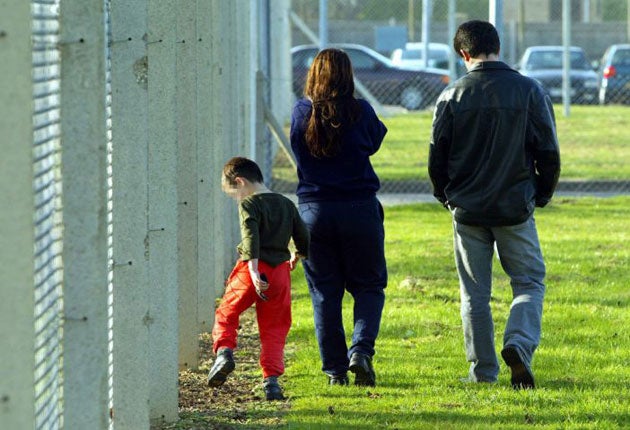Black staff sacked by Refugee Council win discrimination case
£30,000 payout ordered for 'appalling' treatment

Your support helps us to tell the story
From reproductive rights to climate change to Big Tech, The Independent is on the ground when the story is developing. Whether it's investigating the financials of Elon Musk's pro-Trump PAC or producing our latest documentary, 'The A Word', which shines a light on the American women fighting for reproductive rights, we know how important it is to parse out the facts from the messaging.
At such a critical moment in US history, we need reporters on the ground. Your donation allows us to keep sending journalists to speak to both sides of the story.
The Independent is trusted by Americans across the entire political spectrum. And unlike many other quality news outlets, we choose not to lock Americans out of our reporting and analysis with paywalls. We believe quality journalism should be available to everyone, paid for by those who can afford it.
Your support makes all the difference.The British Refugee Council has been ordered to pay one of its former employees £30,000 in compensation after a tribunal ruled that it was guilty of racial discrimination when it sacked the only two black people working at an immigration centre.
The council must pay the amount to Zaina Ukwaju, who won a claim for unfair dismissal, victimisation and racial discrimination after losing her job as a detainee adviser at the Oakington immigration centre in Cambridge. Her colleague, Nigerian-born Emmanuel Obikwu, also won a racial discrimination case against the council after he was dismissed alongside Ms Ukwaju. Mr Obikwu's compensation amount will be decided at a later hearing.
Ms Ukwaju, who was born in Tanzania but lives in London, was selected for redundancy when the Home Office announced plans to close the immigration centre in May 2006. But despite the proposals being put on hold, Ms Ukwaju and Mr Obikwu lost their jobs five months later.
The employment tribunal, sitting in Bury St Edmunds, Suffolk, heard that their departures left no black workers at the Oakington centre. The tribunal chairman Brian Mitchell said white members of staff with less service were retained over the black claimants.
The tribunal was held over eight days in April, but the decision was only released yesterday. During the hearing Mr Mitchell said the British Refugee Council had failed to follow its redundancy rules in "the most extreme way".
It was alleged by Ms Ukwaja and Mr Obikwu that the council's operations manager Anne-Marie Leech was "consciously biased" when selecting members of staff to be made redundant. They pointed to the fact that no one who had attended a party at Ms Leech's home was made redundant as evidence.
The three-man tribunal panel rejected this claim, but said that it was likely that Ms Leech "subconsciously" favoured colleagues she was friendly with – particularly those at the party.
Mr Mitchell said: "We consider it more likely she was subconsciously tending to favour her small team of individuals with whom she had a friendly working relationship. A number of those who attended a party at her home were saved from redundancy. Neither of the claimants were invited."
The tribunal also ruled that the fact that Ms Ukwaja was summoned to the charity's headquarters in Brixton, south London, after senior members of staff became aware that she was gathering evidence and planning to take legal action against the charity, amounted to victimisation. The British Refugee Council was ordered to pay £15,000 for injury to feelings due to racial discrimination, £8,349 for unfair dismissal, £5,000 for discrimination, and £2,643 in interest on lost earnings.
Compensation for Emmanuel Obikwu, who also won his case, is to be decided at a later date. Of his co-claimant's awards, he said: "We are very happy with the decision because the treatment Zaina and I were given was appalling. When Zaina was dismissed in October 2006 it was victimisation on top of the racial discrimination we were complaining about. We were devastated by our treatment by the British Refugee Council. The industrial tribunal is a common man's court and the common man got justice."
Joy Warmington, chief executive officer of the equalities charity BRAP, formerly the Birmingham Race Action Partnership, condemned the British Refugee Council. She said: "It's a shame that the week America is inaugurating its first black president, we're still dealing with thoughtless acts of racism in this country. But we shouldn't forget that the council does a lot of good work across the country."
A spokesman for the British Refugee Council said: "The Oakington restructuring was carried out in very difficult circumstances and the managers involved acted in good faith. We have reviewed our procedures to ensure all staff are treated equally and fairly."
Join our commenting forum
Join thought-provoking conversations, follow other Independent readers and see their replies
Comments